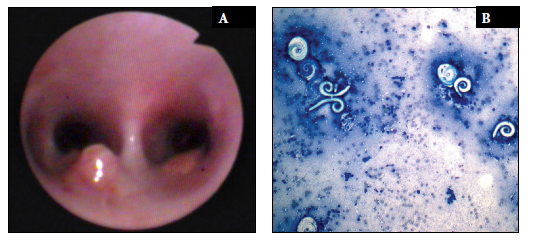Difference between revisions of "Canine Infectious Diseases: Self-Assessment Color Review, Q&A 20"
Jump to navigation
Jump to search
(Created page with "{{CRC Press}} {{Student tip |X = providing a well-written answer. }} <br><br><br> centre <br> '''Case 20 is the same dog as in Cas...") |
|||
| Line 17: | Line 17: | ||
</FlashCard> | </FlashCard> | ||
| − | To purchase the full text with your 20% discount, go to the [https://www.crcpress.com/ | + | To purchase the full text with your 20% off discount code, go to the [https://www.crcpress.com/9781482225150 CRC Press] Veterinary website. |
| − | |||
| − | |||
[[Category:CRC Press flashcards]] | [[Category:CRC Press flashcards]] | ||
Revision as of 16:52, 8 November 2018
| This question was provided by CRC Press. See more case-based flashcards |

|
Student tip: This case is providing a well-written answer. |
Case 20 is the same dog as in Case 19. The owners elected to have bronchoscopy performed (A). Based on the bronchoscopic findings, bronchoscopic-guided brush biopsies and cytology of impression smears of the brushings were performed (B).
| Question | Answer | Article | |
| With what disease process are the bronchoscopic image and the histopathology most consistent? | The nodular lesions in the carina and the findings on biopsy are consistent with Oslerus osleri infection.
|
Link to Article | |
| Is there an additional diagnostic test that could have provided the diagnosis prior to bronchoscopy? | Fecal Baermann analysis can be used to detect larval stages of airway parasites such as O. osleri. The larvae are coughed up into the mouth, ingested, and passed in the feces. Tests can be falsely negative owing to intermittent appearance of parasites in the feces.
|
Link to Article | |
To purchase the full text with your 20% off discount code, go to the CRC Press Veterinary website.
